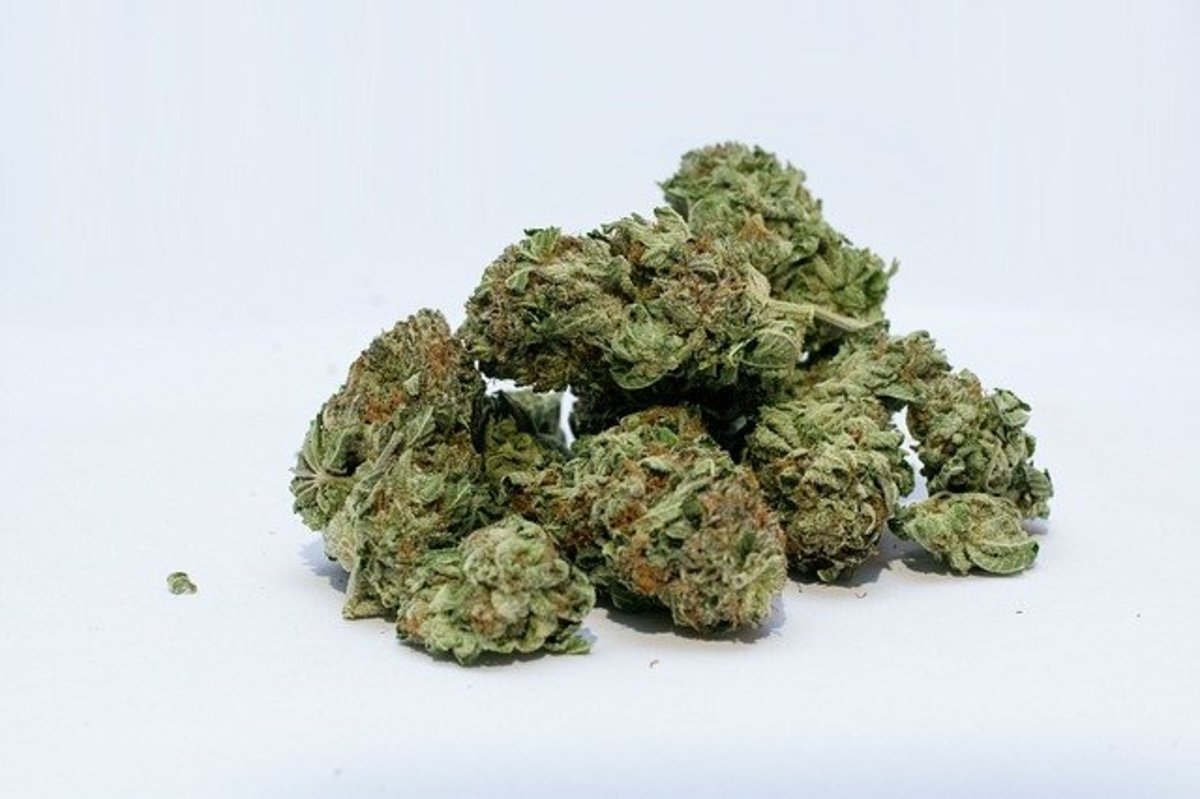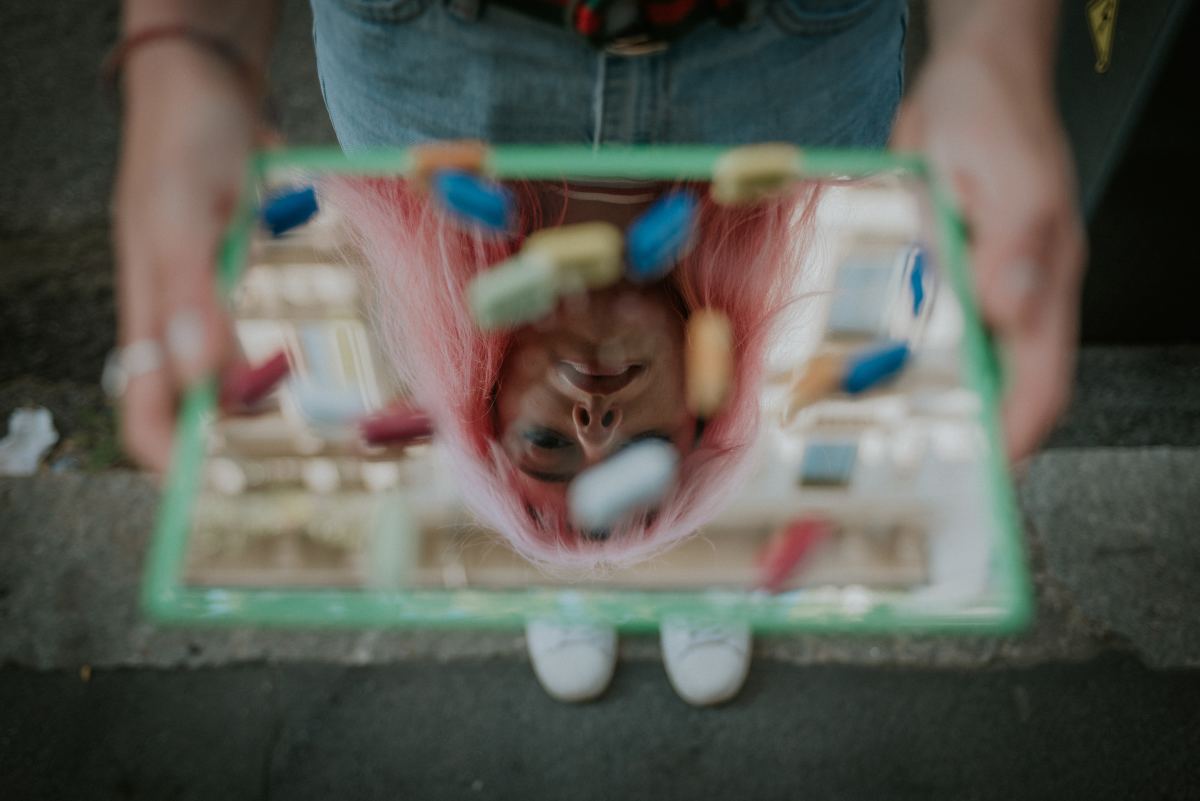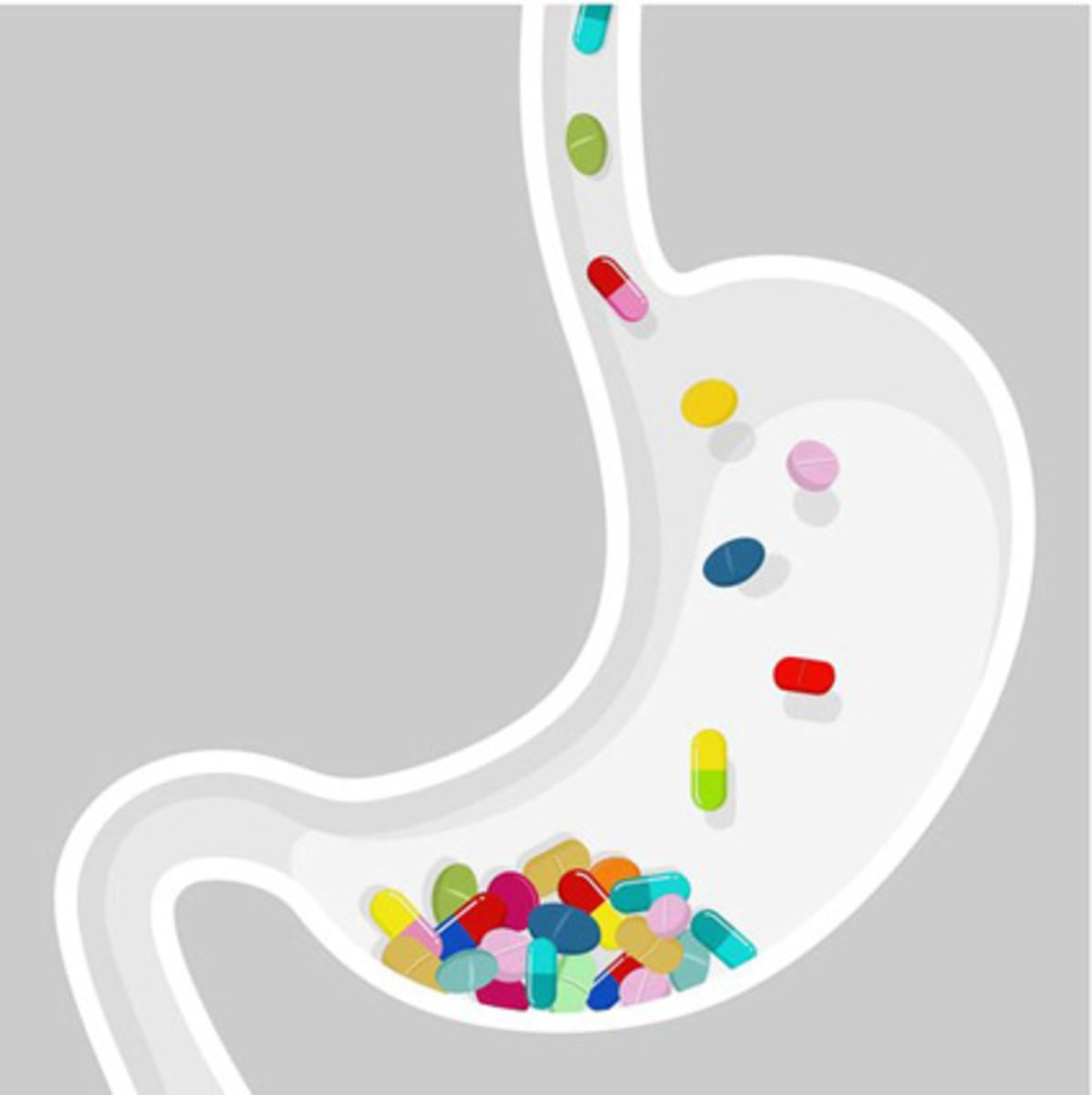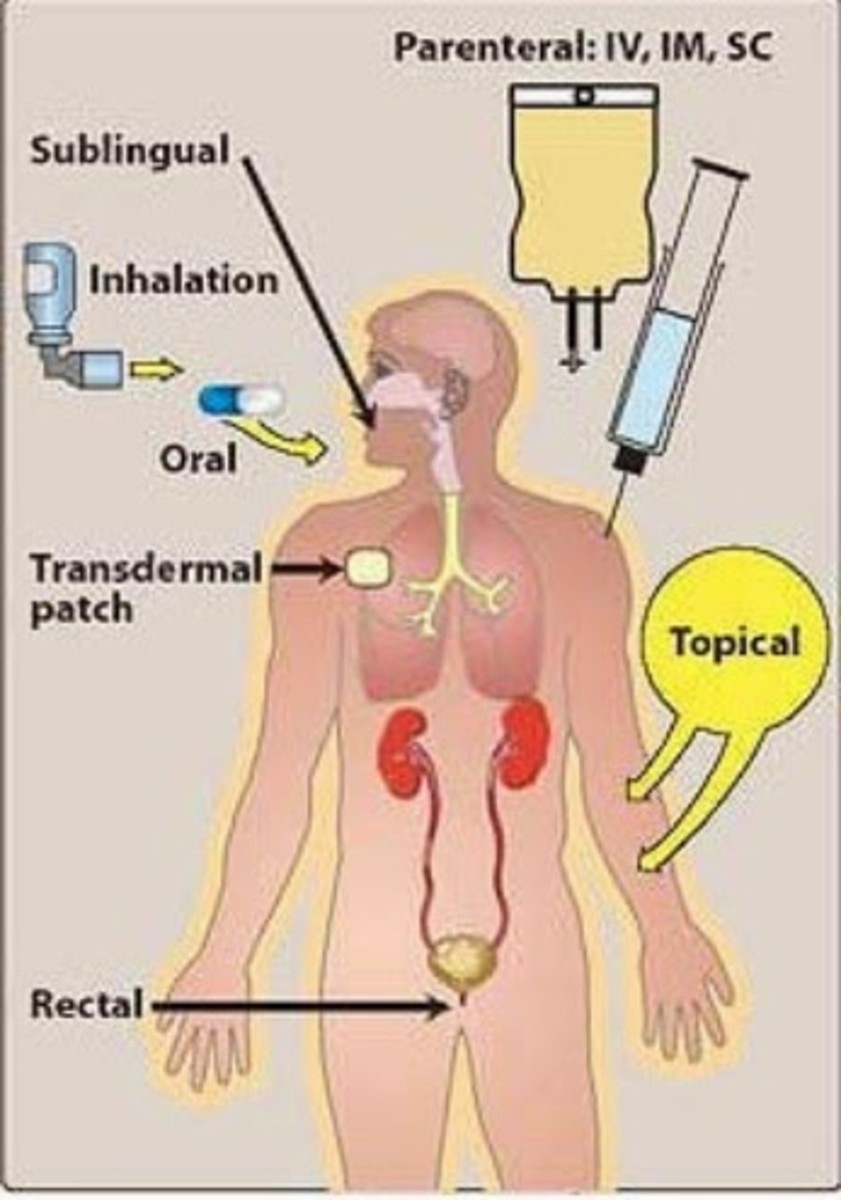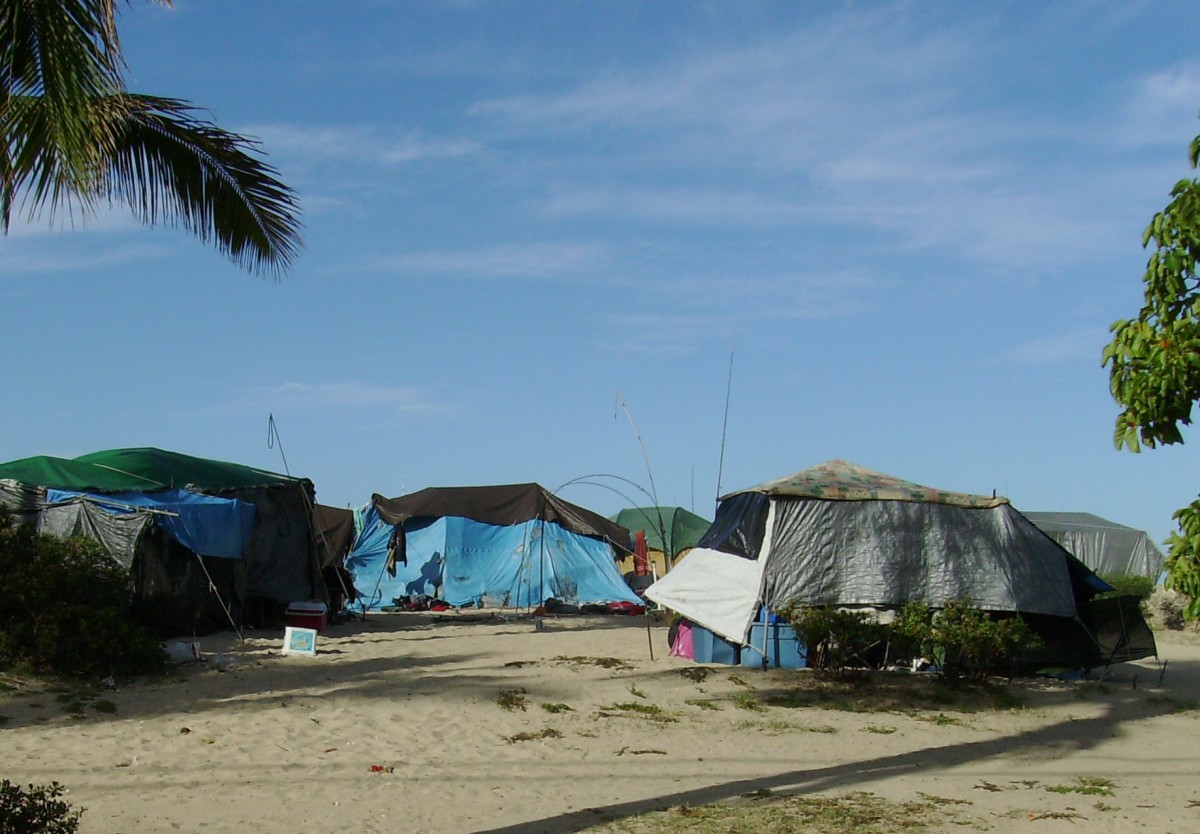Legalization: A Case for Ending the War
Poll: Which of the following best expresses your take on drug policy?
Driving through a neighborhood I once called home, I stopped my car for a frail, elderly woman waving me down from the sidewalk. "No matter what she says, don’t let her know you have any money," said my friend from the passenger seat. The woman only needed a short ride to visit a friend. "Hey Justin," she addressed me from the back seat, "I promised to give my friend a few dollars for gas. Would you happen to have anything you could lend me?"
"Sorry," I said, "I’m broke."
The woman continued to ask and plead, as my friend looked like he wanted to disappear. The woman was his mother, and the only reason she was in my car was to obtain money to support her crack-cocaine habit.
In those days, I attributed the devastation around me to crack-cocaine. I now believe our national drug policy is to blame, and I’m not the only person who feels this way. The issue of drug legalization versus criminalization has been dividing people for many years. In the 1800s, there was almost no regulation of drugs in America. Through the successive creation of new government agencies and legislative acts, the federal government readied itself for change. An increasing social/religious outcry against alcohol then provided good opportunity to fully test the concept of control. Alcohol prohibition began in 1920.
Prohibition failed, and was repealed less than fifteen years later. Within only five more years, Marijuana was outlawed. The American public was primed for this by media campaigns designed to arouse their fear and hostility toward the drug. Although Marijuana was key in the public opinion takeover, the ensuing "War on Drugs" effectively criminalized many commonly used drugs. Drug control today is actually a global issue, so that complete policy reform within our borders would break international treaties.
Theories abound in regard to the political motivations behind the global War on Drugs. However, I only want to demonstrate that much unnecessary suffering is caused directly by criminalization, and that we should focus instead on public awareness, regulation, and rehabilitation. I’ll also address the following humanitarian arguments against legalization: it will increase drug use, it will increase crime, and it will contribute to deadly accidents.
America currently consumes massive amounts of illicit drugs every year, and legalization of drugs could certainly increase the number of drug users. While no one wants to see this happen, I maintain that the sacrifice would be far outweighed by the rewards. By properly managing the legalization process, I think we could keep the initial spike of users under relative control. If our tax money--currently used to incarcerate people for minor-possession charges--then goes to public awareness and rehabilitation, we might expect this initial spike to decline steadily. The sharp drop in cigarette consumption over the past years certainly correlates with the drives for public awareness and the increase in quitting-assistance. These numbers are very significant considering how addictive cigarettes are, and the fact that criminalization was not needed to produce these results .
The Office of National Drug Control Policy (ONDCP) shows the aforementioned cigarette consumption data on their website. They put this chart next to a chart that shows declining use in Marijuana from the 1970s to the present. They imply that this second chart shows the effectiveness of our drug policies in reducing the number of users. However, one may open a new browser window to read their methodology in microscopic print. The cigarette data comes from actual sales numbers. The data for Marijuana comes from a survey, which requires an open admission from the survey participant.
During the socially permissive and legally lax period of the 70s, more people admitted their drug use. Today, users are stigmatized in society and hunted down by the law. Today, fewer people openly tell survey administrators for a government agency that they are drug users. How well does this prove that our policies have significantly decreased the number of users?
While legalization may cause a controllable increase in users at the outset, this doesn’t necessarily justify the consequences of criminalization. Criminalization eradicates competition for the illegal drug dealers. They are given a monopoly. There is no quality control, and users must pay outrageously inflated prices for products with potentially lethal defects. If cocaine, for example, was sold at Wal-Mart for eight dollars per gram, every illegal cocaine dealer in the country would be out of business. They would have no way of competing with the prices, quality standards, and efficient distribution systems of established retailers. This illustrates the concept of "Market Disruption". The White House claims this is one of the three lines of attack in their current strategy for drug control.
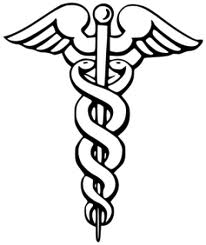
Rather than employing legalization to disrupt the drug market, the current administration hopes to do this by driving drugs prices even higher. They believe this will end the demand for drugs. However, even if the government somehow severs the currently massive demand, drug prices presumably would plunge quickly. With no demand, how do they plan to maintain peak costs for drugs?
Additionally, much of the revenue for the black market comes from addicts. If they can’t afford the prices, they often begin stealing, conning, and robbing in order to buy their drugs. So what’s to say that if we drive costs still higher, we will not suffer an increase in the number of addicts who steal to pay the new prices, generating enough cash-flow for the black market to continue thriving?
How can the administration afford the costs involved in fighting this War on Drugs, when we have so many other wars to fight? According to the government, "Regardless of the time and expense involved, market disruption yields several additional benefits. It contributes to the Global War on Terrorism, severing the links between drug traffickers and terrorist organizations...".
There’s another way we could help cut funding for terrorism, without spending large amounts to fight a drug war: legalization. Once more, if drugs were a legitimate business, the competition from legitimate businesses would drive most corrupt drug business out of business. Despite this, television ads must remind citizens that they are financing terrorism.
This is a good place to address the fear that legalization will increase crime. I can certainly understand this fear, but I believe it has been largely by fed by slanted statistical data and outright misinformation. To show this, I decided to go directly to the source: the American government.
The Office of National Drug Control Policy (ONDCP) provides a summary of the relationship between drug use and crime. This can be found on their web-site. This relationship is summed up as follows: "1. Drug-defined offenses [using, selling, or making/growing illegal drugs] [...] 2. Drug-related offenses - Offenses to which a drug's pharmacological effects contribute; offenses motivated by the user's need for money to support continued use; and offenses connected to drug distribution itself. 3. Drug-using lifestyle - A lifestyle in which the likelihood and frequency of involvement in illegal activity are increased because drug users may not participate in the legitimate economy and are exposed to situations that encourage crime." After lengthy rhetoric, they come to the conclusion that, "The evidence indicates that drug users are more likely than nonusers to commit crimes, that arrestees frequently were under the influence of a drug at the time they committed their offense, and that drugs generate violence."
I will start by pointing out that if you consider the use of illegal drugs to be criminal activity--as is summed up at first--then it necessarily follows that drug users are more likely to commit crimes.
Second, the study on arrestees used a urine test, which can not indicate whether the arrestee was under the influence at the time of the offense. The testable chemical in Marijuana is stored in fat cells and can show up in a urine test up to a month after the fact. Saliva or blood tests, on the other hand, could be used to confirm actual intoxication upon arrest. The government chose not to use those testing methods.
Last of all, I will answer the statement that "drugs generate violence". The only violence mentioned in the summary was based on the pharmacological effects, the users need for money to support use, and the corruption and ruthlessness of the illegal drug industry and the people involved. The evidence of pharmacological causation was doubtful at best, and intentionally deceptive at worst. That leaves only violence related to the illegal drug industry and the outrageous prices it charges desperate addicts. To solve that problem, I suggest legalization. With no illegal drug industry, there would be no violence related to said industry. Furthermore, drugs would be affordable enough to prevent violent attempts from addict to obtain the drug.
So when the ONDCP concludes that "drugs generate violence", they might have said "there is limited and dubious research that indicates some link between crime and the pharmacologic effects of drugs, but most drug-related crime is generated by the criminalization of drugs".
Note: I wrote this paper as a college freshman, during the Bush administration, which must explain any lack of depth in my investigation, as well as any information which seems outdated. Here is a link to an ONDCP report on drugs and crime, but I don't know if it is exactly the same as the one I referred to in this article: http://www.whitehousedrugpolicy.gov/publications/factsht/crime/index.html
I will be doing further research on the assertions I made in this paper, as well as looking for the references I used when I wrote it. I'll update this hub with any additional information as I go.
© 2010 Justin Aptaker

